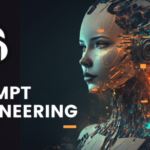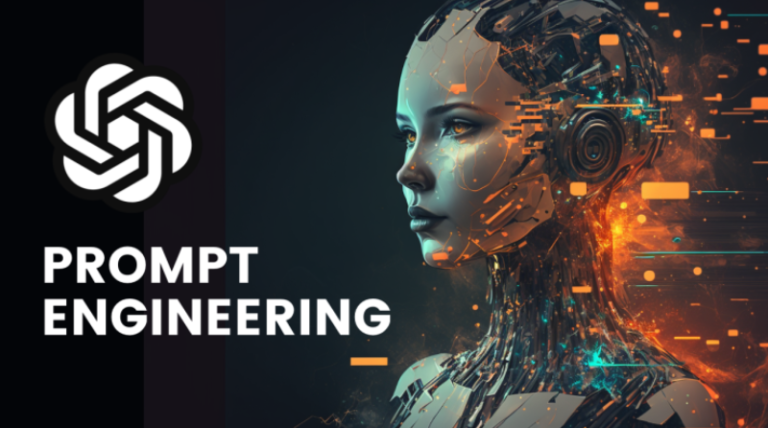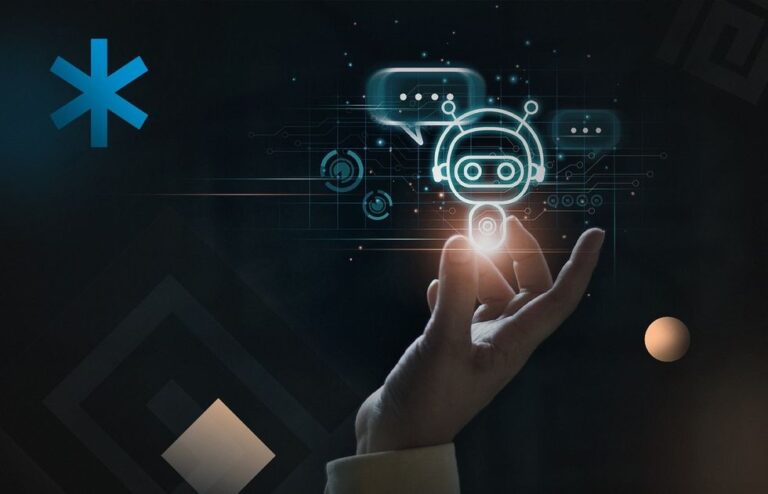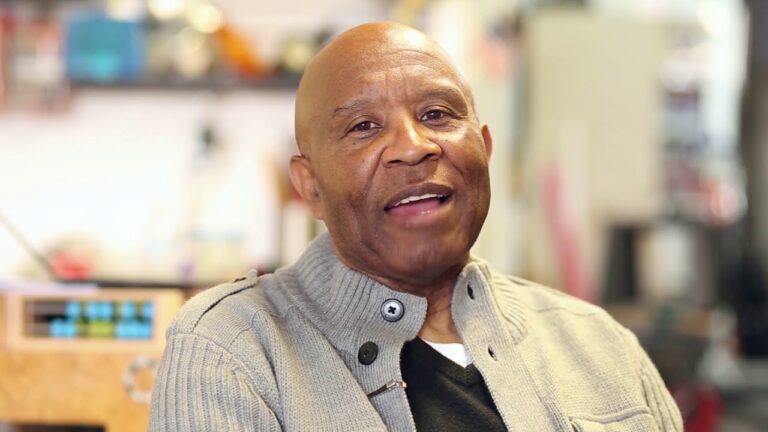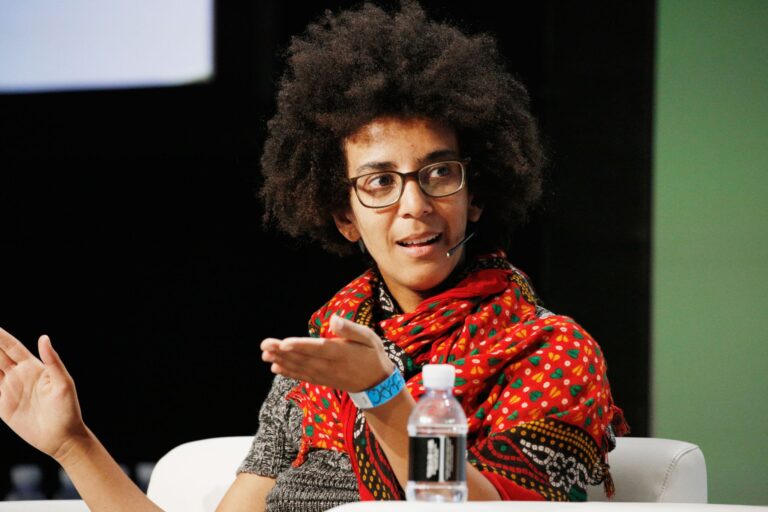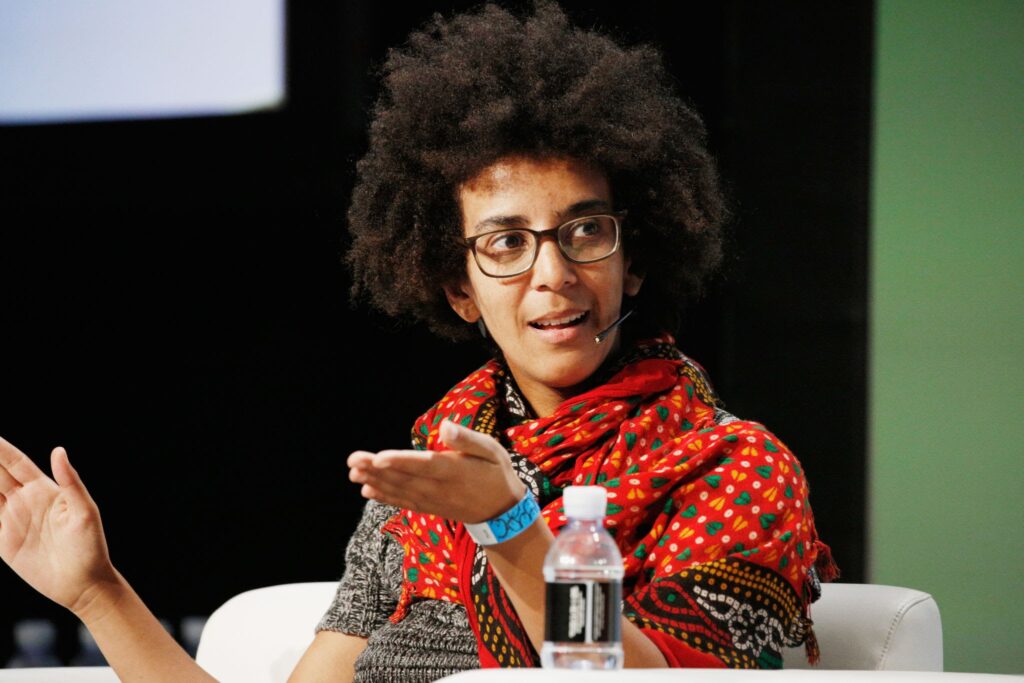
SAN FRANCISCO, CA - SEPTEMBER 07: Google AI Research Scientist Timnit Gebru speaks onstage during Day 3 of TechCrunch Disrupt SF 2018 at Moscone Center on September 7, 2018 in San Francisco, California. (Photo by Kimberly White/Getty Images for TechCrunch)
By: Omari Bakari
From reparations advocacy to AI-driven chatbots, Black innovators are leveraging artificial intelligence to drive social change, education, and economic empowerment.
Artificial Intelligence (AI) has become a cornerstone of technological advancement, impacting industries from healthcare to finance. Yet, a significant part of this transformation involves how Black communities engage with AI, not just as consumers but as creators and innovators. Through my journey, I have utilized AI to address systemic issues like reparations, developed chatbots to support Black-owned businesses, and advocated for the broader adoption of AI among Black communities. This work highlights both the potential and the challenges that come with this intersection.
One of the key areas where I’ve applied AI is in addressing the reparations movement for Black Americans. Through a series of historical blogs, I utilized AI tools to analyze and present data that reflects the economic disparities rooted in historical injustices. By creating interactive case studies, these blogs provided detailed insights into the legacy of slavery, segregation, and discriminatory practices that have contributed to the wealth gap. AI-enabled data visualization allowed us to show clear patterns of inequality, from housing discrimination to disparities in access to quality education. This approach turned historical data into a compelling narrative, offering a new perspective on the reparations debate. Through AI, we made complex historical and economic data more accessible, allowing people to engage with the information in a meaningful way.
In addition to historical analysis, I have written extensively about the need for Black communities to embrace AI as a tool for progress and self-determination. AI is often seen as a technology designed and controlled by a few large corporations, but there is immense potential for marginalized communities to use AI for their benefit. By demystifying AI through my articles, I aimed to show that it is not only a tool for tech giants but also for small businesses, activists, and educators. My advocacy focuses on the importance of digital literacy, encouraging Black people to not only use AI tools but to also become active participants in shaping AI policies and technologies. It is crucial for us to recognize that AI can perpetuate existing biases if not developed inclusively, but it can also serve as a powerful means of challenging those same biases.
A key part of my work has involved developing AI-driven chatbots tailored for various needs within the Black community. These chatbots serve multiple purposes: providing educational assistance, supporting Black-owned businesses, and acting as media/news platforms. For example, chatbots designed for educational assistance can provide tutoring on subjects where students often face gaps, using interactive lessons and personalized feedback. For businesses, AI chatbots can handle customer service, automate responses to frequently asked questions, and manage marketing campaigns, allowing Black entrepreneurs to scale their operations efficiently. This empowers businesses to compete on a level playing field, even when they lack the resources of larger corporations.
The integration of AI into media and information services has also been a focus, particularly in developing chatbots that act as news outlets for Black communities. These bots aggregate news relevant to Black audiences, highlighting stories that mainstream outlets often overlook. They also facilitate discussions around social justice issues, providing a platform for diverse voices. This approach not only democratizes access to information but also ensures that the stories of Black people are told accurately and without bias.
The journey of Black people engaging with AI is not without its challenges. The field of AI has been scrutinized for its lack of diversity and the perpetuation of biases within algorithms. Figures like Timnit Gebru, a former AI researcher at Google, have been instrumental in shedding light on these issues. Gebru’s work, particularly in identifying racial biases within AI models, has been crucial for the AI ethics movement. Her departure from Google highlighted the tensions between big tech and the need for ethical AI development. As we engage with AI, it’s essential to recognize these challenges and advocate for the inclusion of Black voices in AI research and development. Organizations like Black in AI play a critical role in creating a supportive community for Black AI researchers and developers, providing mentorship, networking, and resources that are vital for navigating the tech industry.
The collective engagement of Black people with AI, whether through grassroots projects or formal organizations, is shaping a future where technology serves all communities equitably. By embracing AI as a tool for advocacy, education, and business, we are redefining what it means to be a stakeholder in the tech landscape. The work we do today in building AI solutions that reflect our values and experiences sets the stage for a future where AI is a force for social change and economic empowerment.
https://time.com/collection/100-most-influential-people-2022/6177822/timnit-gebru
https://www.dair-institute.org/team
https://www.blackinai.org/community
#BlackInTech, #AIForGood, #TechForJustice, #EmpowerWithAI, #BlackExcellence
Artificial Intelligence (AI), Reparations, Black Communities, AI Ethics, Digital Literacy, Chatbots, Timnit Gebru, Economic Empowerment, Inclusive Technology, Black Innovators


